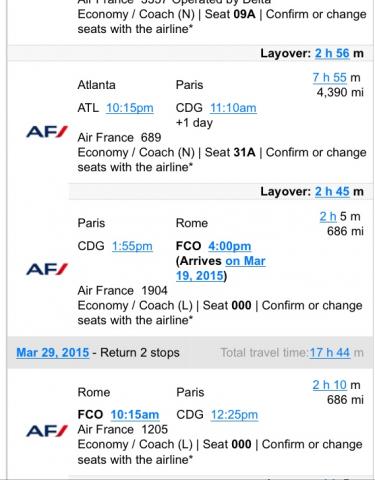Your Essential Prep-guide to the Planning Stage of Studying Abroad
Jul 21,2015
1. Book Your Flight
As soon as you get accepted, know your move-in day, and have committed to studying abroad, you need to buy your plane ticket. Not only is it a huge “first” purchase that truly makes your trip come to life, but you will have a chance at better deals the sooner you get it. You also need to have your flight confirmation in order to fill out other major document applications, so get your flight booked ASAP!
2. Apply For Your Student Visa and Passport
The process of getting a passport, especially if you have never had one before, can take quite a few weeks. Getting a student visa requires you to have a passport, and can take even longer, so you can see why you would want to get an early start on getting your passport. Getting a student visa requires a mix of other documents such as a state ID, passport photo, birth certificate, housing certificate for your accommodations abroad, flight confirmations, and a bank statement. Check with your study abroad office and the closest embassy for your study abroad country and see what documents you will need and get started gathering them as soon as possible.
3. Register For Classes and Apply For Housing
The sooner you register for your classes abroad, the better your chances are of getting the classes you want, therefore bettering your chances of being able to get full credit for them at your home university. Plus, registering for classes is one of the fun parts of planning your study abroad trip that will help you get excited and keep you motivated to get through all of the other hoops in the planning stage. The same goes for applying for housing: the sooner you complete the application, the better your chances are of getting the room assignment or area that is your top choice. This is also an important part of the visa application process because you need to provide proof of your temporary residence in order to get the visa. Not to mention how fun it will be to google pictures and take virtual tours of the place you are going to call home for a few months.
4. Apply For International Cards
Phone, insurance, and credit: the three kinds of international cards that are a really good idea to have access to while studying abroad. An international phone card, sim card, or phone plan aren’t entirely necessary, but sure make the trip a lot easier and more comfortable to know that you aren’t off the grid every time you step outside or away from wifi. If you do keep your current phone plan, consider freezing the account for a few months, that way you aren’t paying for a service that you aren’t using, and don’t have to change your phone number or service plan. An international insurance plan is a good idea as well (and is usually a requirement by either your home school or your study abroad school) and are relatively inexpensive. Since you will likely only be gone for a few months, you can get a plan that covers your for the hundred or so days only. An international credit card can come in handy if you need to make a emergency purchase, but can also be used for every day items, too. The bonus of an international credit card is that you might not be charged with every swipe, and you might even be able to build up some credit in your name.
5. Stock Up on Your Prescriptions
If you need to visit your doctor before you can order more prescriptions, schedule an appointment as soon as you can, since it can take some time to get in to see your doctor sometimes. If it works out to just call your doctor, explain that you are going abroad and ask for them to sign off on giving you an advance amount of your prescription. You don’t want to rely on finding the equivalent of your prescription in a foreign country, or run out of your own, so stock up and bring more than you need. Also take the time to get extra of your favorite or go-to over-the-counter drugs so that if you get a cold, a sore throat, or are sensitive to the foreign allergens, you don’t have to be miserable.
6. Organize Your Luggage
If you don’t have the right luggage to get you and all of your necessities overseas, look into borrowing or investing in new luggage. After you book your flight, you will also know how many bags you can have with you, and how much it will cost if you bring more. Once you have your luggage, you can start to gauge how much you can fit, which will help you in the pairing down process of clothes and extra items you want to pack. You can also look into the best way to pack your things and what items will go best in each piece of luggage. If you can, getting a travel-friendly backpack with a lot of zippers and small pouches can be very helpful for carrying your phone, passport, boarding passes, and basically everything else that you will benefit from having easy access to.
With so many things to cross off of your check list when planning your study abroad, don’t let all the fun tasks get lost in the big overwhelming ones. With these few tips under your belt, you can get through some of the most important steps in your study abroad prep.






